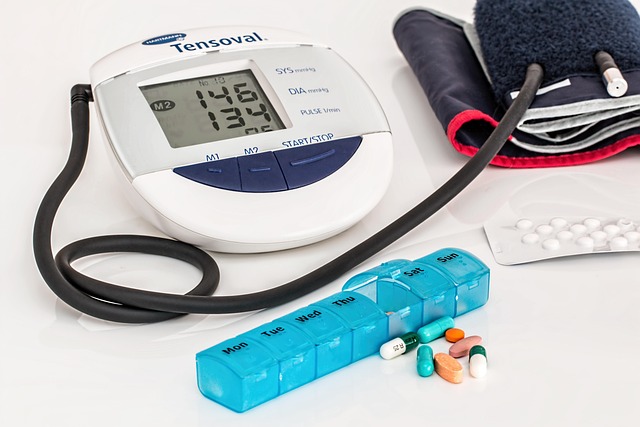The Latest Breakthroughs in Kidney Disease Treatment You Should Know About
Kidney disease affects millions of people worldwide, and advancements in medical science are continually improving how we diagnose, manage, and treat this condition. From innovative medications to cutting-edge therapies, the landscape of kidney disease treatment is evolving rapidly. Understanding these developments can help patients and their families make informed decisions about care options and what to expect in terms of outcomes and costs.

Kidney disease remains one of the most challenging health conditions, impacting quality of life and requiring long-term management. However, recent years have brought significant progress in treatment approaches, offering new hope to patients at various stages of the disease. Whether you are newly diagnosed or managing chronic kidney disease, staying informed about the latest treatment options is essential for navigating your healthcare journey effectively.
What Are the Key Kidney Disease Treatment Options in 2025?
Kidney Disease Treatment 2025 encompasses a wide range of approaches tailored to the stage and severity of the condition. Early-stage chronic kidney disease often focuses on lifestyle modifications, blood pressure management, and medications to slow progression. Newer classes of drugs, including SGLT2 inhibitors originally developed for diabetes, have shown promising results in protecting kidney function. These medications work by reducing glucose reabsorption in the kidneys, which also helps lower blood pressure and decrease protein loss in urine.
For more advanced cases, treatment may involve dialysis or kidney transplantation. Dialysis technology has improved significantly, with home dialysis options becoming more accessible and portable devices in development. Transplantation remains the gold standard for end-stage kidney disease, with advances in immunosuppressive therapies reducing rejection rates and improving long-term outcomes. Regenerative medicine and stem cell research are also emerging areas that may revolutionize kidney disease treatment in the coming years.
How Do Kidney Disease Treatment Costs Vary?
Kidney Disease Treatment Costs can vary dramatically depending on the stage of disease, treatment modality, insurance coverage, and geographic location. Early-stage management focusing on medications and lifestyle changes may cost several hundred to a few thousand dollars annually, primarily for prescription drugs and regular monitoring through blood tests and doctor visits. Patients with insurance typically face lower out-of-pocket expenses, though copays and deductibles still apply.
Dialysis represents a significant financial commitment, with costs ranging from $30,000 to over $90,000 per year depending on the type and frequency of treatment. Hemodialysis performed at a clinic is generally more expensive than home-based options, though home dialysis requires initial setup costs and training. Kidney transplantation involves substantial upfront costs, typically between $400,000 and $450,000 for the surgery and first-year care, but long-term maintenance costs are often lower than ongoing dialysis.
Prices, rates, or cost estimates mentioned in this article are based on the latest available information but may change over time. Independent research is advised before making financial decisions.
What Should You Consider in a Kidney Disease Treatment Comparison?
When evaluating Kidney Disease Treatment Comparison options, several factors come into play beyond just effectiveness. Treatment burden, quality of life impact, side effects, and compatibility with your lifestyle are all important considerations. For instance, peritoneal dialysis can be performed at home and offers more flexibility than in-center hemodialysis, but it requires daily commitment and carries a risk of infection.
Medication choices also warrant careful comparison. Traditional blood pressure medications like ACE inhibitors and ARBs remain first-line treatments, but newer agents like SGLT2 inhibitors and mineralocorticoid receptor antagonists offer additional kidney protection. Each medication has different side effect profiles, costs, and effectiveness depending on individual patient characteristics. Working closely with a nephrologist to compare treatment options based on your specific situation is essential for optimal outcomes.
Transplantation versus long-term dialysis is perhaps the most significant comparison patients face. While transplantation offers better quality of life and survival rates, it requires finding a suitable donor, undergoing major surgery, and lifelong immunosuppression. Dialysis avoids these challenges but involves ongoing time commitment and potential complications. The decision depends on medical eligibility, donor availability, personal preferences, and support systems.
Understanding Kidney Disease Treatment Prices Across Different Options
Kidney Disease Treatment Prices reflect not only the direct medical costs but also indirect expenses like transportation, time off work, and caregiver support. For patients considering different treatment paths, understanding the full financial picture is crucial for planning and decision-making.
| Treatment Type | Provider/Setting | Estimated Annual Cost |
|---|---|---|
| Medication Management | Outpatient Nephrology Clinic | $2,000 - $8,000 |
| In-Center Hemodialysis | DaVita, Fresenius Medical Care | $72,000 - $90,000 |
| Home Hemodialysis | Home-based with clinic support | $50,000 - $70,000 |
| Peritoneal Dialysis | Home-based with supplies | $55,000 - $75,000 |
| Kidney Transplant | Hospital Transplant Center | $400,000 - $450,000 (first year) |
| Post-Transplant Care | Outpatient follow-up | $20,000 - $35,000 (annually) |
Prices, rates, or cost estimates mentioned in this article are based on the latest available information but may change over time. Independent research is advised before making financial decisions.
These figures represent typical costs before insurance coverage, which can significantly reduce out-of-pocket expenses. Medicare covers dialysis and transplantation for eligible patients, while private insurance coverage varies by plan. Many dialysis providers offer financial counseling to help patients navigate insurance and payment options.
How Can You Access Affordable Kidney Disease Treatment?
Finding affordable treatment options requires understanding available resources and assistance programs. Many pharmaceutical companies offer patient assistance programs for expensive medications, particularly newer drugs that may not be fully covered by insurance. Nonprofit organizations like the American Kidney Fund provide financial assistance for treatment-related expenses, including insurance premiums, transportation, and medications.
For dialysis patients, choosing home-based treatment can reduce costs while improving flexibility and quality of life. Medicare’s End-Stage Renal Disease program covers most dialysis costs for eligible patients, typically starting after a three-month waiting period. Exploring all insurance options, including marketplace plans and Medicaid eligibility, is important for minimizing financial burden.
Transplant candidates should investigate living donor options, which often result in better outcomes and shorter wait times compared to deceased donor transplants. Some transplant centers offer paired kidney exchange programs that increase the likelihood of finding a compatible donor. Financial assistance for transplantation may be available through hospital programs, nonprofit organizations, and crowdfunding platforms.
What Does the Future Hold for Kidney Disease Treatment?
The future of kidney disease treatment looks increasingly promising with ongoing research and technological innovation. Artificial kidney devices that could eliminate the need for traditional dialysis are in development, with some prototypes already in clinical trials. These wearable or implantable devices aim to provide continuous kidney function replacement with greater freedom and quality of life.
Regenerative medicine approaches, including stem cell therapies and bioengineered kidneys, represent the cutting edge of research. While still largely experimental, these technologies could eventually provide alternatives to transplantation. Gene therapy for inherited kidney diseases is another area showing potential, with early trials demonstrating safety and preliminary efficacy.
Personalized medicine is also transforming kidney disease care, with genetic testing and biomarkers helping predict disease progression and treatment response. This allows for more targeted interventions and better outcomes. As research continues and new treatments emerge, patients can expect more options and improved quality of life in managing kidney disease.
Navigating kidney disease treatment requires balancing medical effectiveness, quality of life considerations, and financial realities. By staying informed about the latest advances and available options, patients and families can work with healthcare providers to develop treatment plans that best meet their individual needs and circumstances. Whether managing early-stage disease or facing dialysis or transplantation decisions, understanding the full spectrum of treatment possibilities empowers better healthcare choices.
This article is for informational purposes only and should not be considered medical advice. Please consult a qualified healthcare professional for personalized guidance and treatment.




